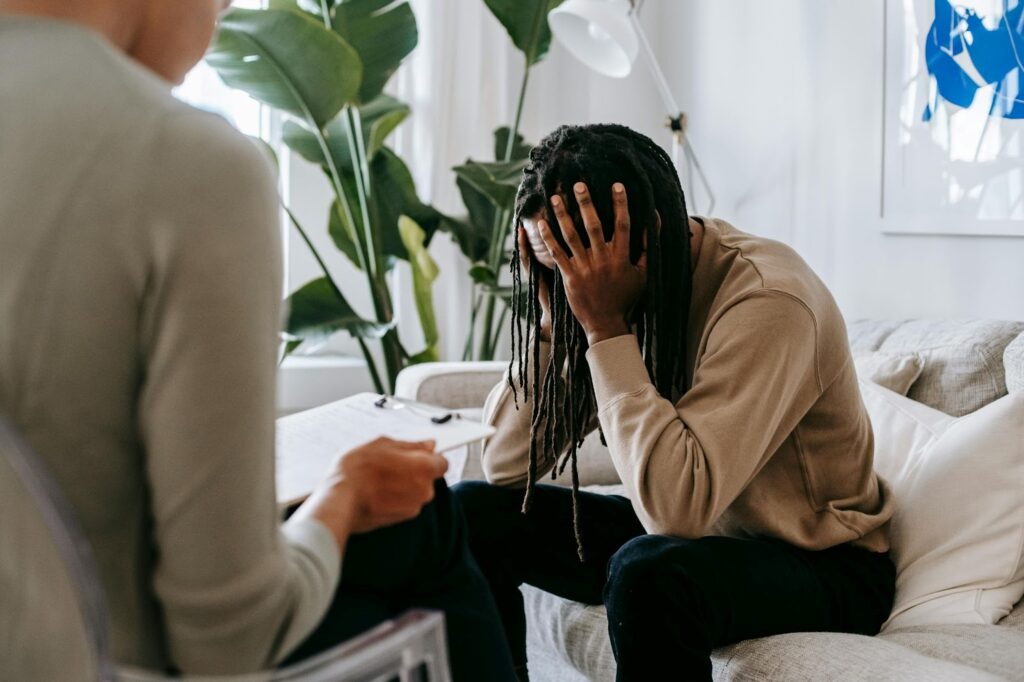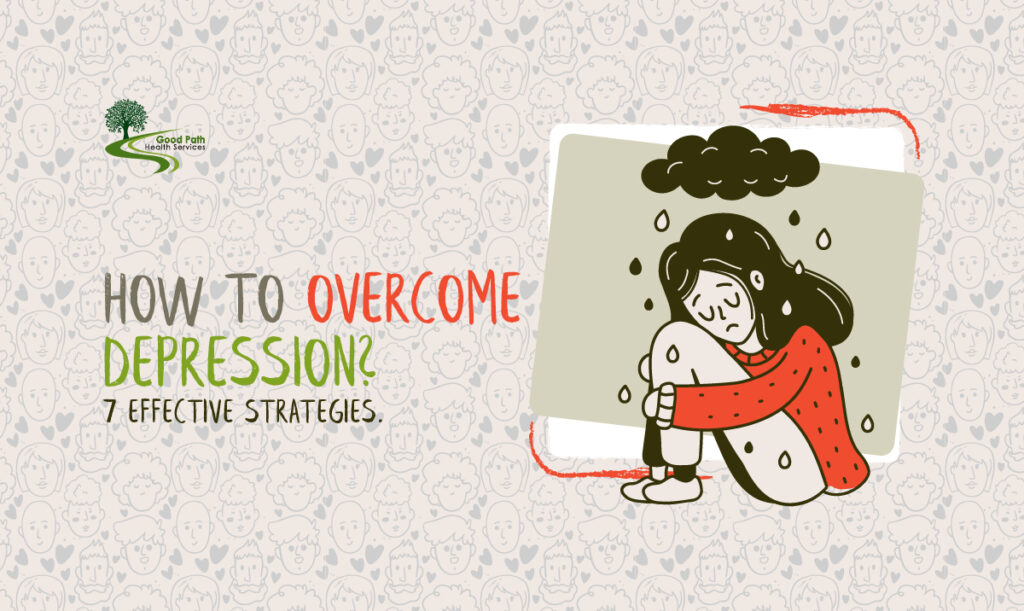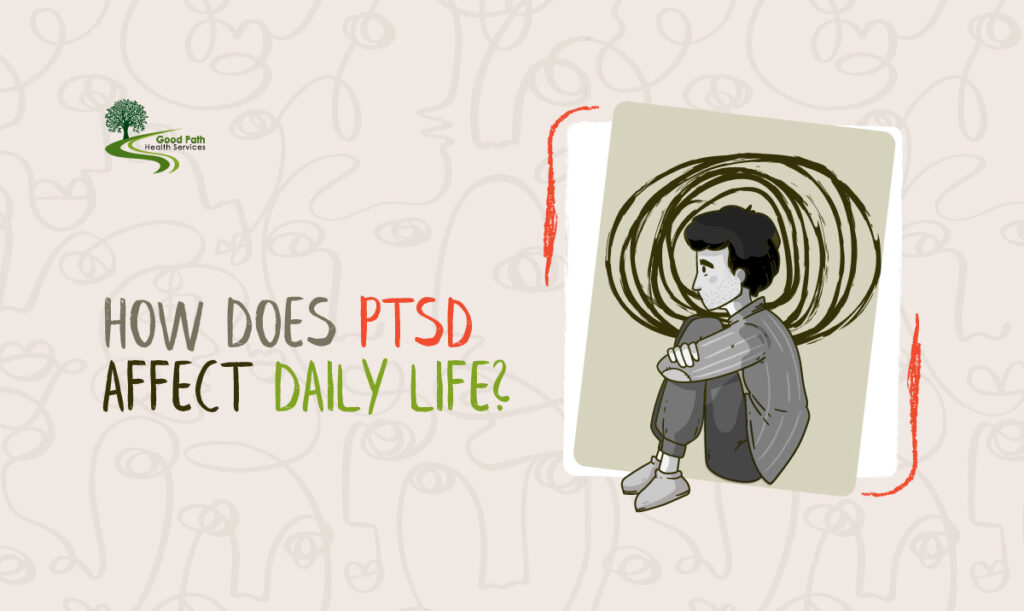
It’s overwhelming when panic and anxiety creep up at the least expected times, making simple chores feel hard. It’s vital to be aware that we can control these strong emotions with the proper methods.
In this blog post, we will explore practical ways how to reduce panic and anxiety, helping you steer your life back on track.
Understanding Panic and Anxiety
Before we delve into techniques, it’s important to grasp what panic and anxiety are.
Anxiety is a sensation of distress, uncertainty, or dread, often over a future incident or unsure result. Feeling anxious in stressful scenarios is normal, but if it takes over and lasts, it might need attention.
A silent anxiety attack might not be as noticeable as a standard one, but it’s just as distressing.
These attacks don’t show the usual signs like rapid breathing or visible worry. Instead, they happen inside you. You could be fighting a storm of feelings under a calm facade.
Signs like rushing thoughts, muscle tension or overwhelming feelings of dread are hallmarks. To outsiders, you seem peaceful, but inside, it’s different.
Symptoms of Panic and Anxiety
Recognizing signs of panic and anxiety is crucial. You might have:
- Rapid heart rate or palpitations
- Shortness of breath
- Sweating or trembling
- Feelings of impending doom
- Dizziness or light-headedness
- Muscle tension
- Trouble concentrating
These feelings might hit suddenly or build up slowly. Ignoring them can really affect your well-being.
This is why it’s so important to learn how to reduce panic and anxiety and start using methods that improve your state of mind.
How to Reduce Panic and Anxiety?
-
Practice Deep Breathing
Deep breathing exercises are easy and effective in calming panic and anxiety. When you sense panic appearing, concentrate on how you breathe. Inhale a deep breath through your nose, pause momentarily, and then gently breathe out through your mouth. Replicate these steps until you feel steadier.
This action aids in slowing your heartbeat and providing more oxygen to your brain, lessening the physical signs of worry. Especially in a quiet episode of anxiety, deep breaths can be beneficial as they allow you to recover control subtly and quietly.
-
Grounding Techniques
Grounding exercises are super helpful in handling panic or anxiety, especially when you are having an anxiety attack. These exercises guide your attention away from your worries and onto what’s happening around you.
A well-known technique is the 5-4-3-2-1 method:
- Spot 5 objects you can see.
- Identify 4 items you can touch.
- Listen for 3 sounds you can hear.
- Notice 2 scents you can smell.
- Taste 1 thing.
By activating your senses, you help your mind step away from nervous thinking and reconnect with the here and now.
-
Challenge Negative Thoughts
Most times, anxiety comes from unwanted or unreasonable thoughts. These thoughts can snowball, making the situation seem worse than it is. If you catch these thoughts coming on, question them. Ask yourself:
- Is this thought based on facts or assumptions?
- What’s the worst that could come from it? How possible is it?
- Can I do anything to shift the outcome?
By examining your thoughts, you can lessen their influence over you and see things more fairly.
-
Make Time for Movement
Regular movement combats nerves. Exercising releases feel-good chemicals called endorphins in your brain, which lifts your spirits and tones down stress.
A brisk walk or easy stretches can change your mood. Keeping up with exercise helps your sleep habits, crucial since bad sleep can ramp up anxiety.
Whether you like yoga, enjoy a run, or love to dance, weave it into your routine.
-
Limit Caffeine and Sugar Intake
Whether you know it or not, your diet may be fueling your anxiety.
Caffeine and sugar might spike your energy temporarily, but they can awaken or escalate worry. Caffeine overload can cause restlessness, a racing heart, or even panic attacks.
Likewise, sugar highs can lead to mood fluctuations. If you’re susceptible to nervousness, consider decreasing your caffeine and sugar amounts.
Choose alternatives like herbal teas, water, or energy-sustaining snacks like nuts or fruits.
-
Establish a Routine
A daily routine gives you a solid foundation in ever-changing times. If things seem out of control, a steady routine brings calm. Eat, exercise, work, and relax at the same time each day. This plan helps avert unseen anxiety as it minimizes surprises.
-
Talk to Someone
Sometimes, easing anxiety is as simple as opening up to a trusted person. A deep talk with a friend, family, or a therapist can lighten the weight of anxiety.
It’s fine to reach out when things get tough. If anxiety or panic is a constant companion, it might be time to search for professional guidance.
Therapists can give you the personalized tools and support needed to better handle anxiety.
-
Practice Mindfulness and Meditation
Mindfulness and meditation can act as potent weapons against panic and anxiety. By grounding yourself in the present moment, a wave of peace can replace your anxious thoughts.
Meditate by finding a quiet spot and focusing on your breathing, or a comforting word or quote.
Mindfulness, though, means plugging into your environment, existing in the ‘now’ without any judgment.
Even just a short daily session of meditation or mindfulness can help anchor you and reduce anxiety.
-
Get Enough Sleep
Sleep ties closely with anxiety. Insufficient rest can leave your body and mind open to tension. Lack of sleep can ramp up your anxiety, making day-to-day challenges feel insurmountable.
Aim for a 7-9 hour sleep window every night. Develop a calming routine before bed to tell your body it’s time to wind down.
Avoid digital screens and anything stimulating before bedtime, and ensure your sleep area is cozy and suitable for rest.
-
Acceptance and Self-Compassion
Don’t forget, it’s okay to be kind to yourself. Everyone feels anxious sometimes, it’s part of being human.
Show yourself compassion and your anxiety may not seem so strong. You may even bounce back quicker. Learning to ease panic and anxiety is a journey.
Testing different techniques is important to discover what helps you most. Anxiety affects everyone differently. But don’t worry if it takes time to find what helps best.
Struggling with constant anxiety or panic attacks? Good Path Health Services is ready to lend a hand.
Our skilled team can help craft a custom plan to better manage your stress and boost your overall health. Don’t let anxiety rule you.
Reach out to Good Path Health Services today and step towards a calmer, more balanced future.



